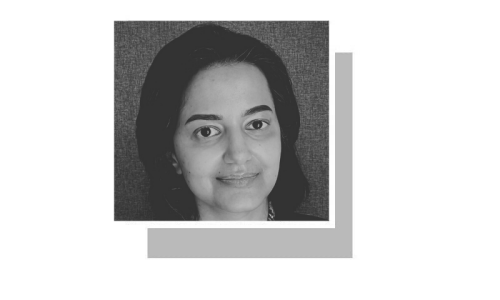LAHORE: An elderly woman, Manzoor Begum, is among scores of hapless patients who were denied admission first to a private hospital and then she could not get complete free treatment at a public hospital under Sehat Card scheme where she died of liver complications. She was forced to get her tests done and buy medicines from private pharmacies on her own.
A resident of Baghanbpura, Begum remained under treatment for more than three weeks and died of liver complications some on Feb 16 at the Sir Ganga Ram Hospital.
When she got ill, her family had first shifted her to a private hospital for treatment under Sehat Card programme but they were asked to visit the government hospital for her treatment from a doctor who was regularly attending her for the last eight years.
“I shifted my mother to Sir Ganga Ram Hospital Lahore on Jan 21 and showed the Sehat Card to the staff who admitted her for treatment as was promised on Sehat Card,” Zafar, the son of Manzoor Begum, tells Dawn.
Reports of free treatment denial surface; private hospitals appear main beneficiaries
He says that as soon as the admission process was completed, the family started facing issues as the doctors suggested medicines to be bought from the market.
When Zafar met the Sir Ganga Ram Hospital medical superintendent (MS) he was told that the newly-launched scheme was not providing complete cover to the patients visiting state-run hospitals.
Willy-nilly, Zafar had to get tests done and buy medicines privately from outside the hospital. The practice continued until his mother died on Jan 16.
He even called the Punjab health minister and the operator misbehaved with him when he complained about his issues.
To a question, he says he has not been informed how much payment was deducted from the Sehat card he had submitted for the treatment of his mother. Zafar is not alone who faced such a predicament while using the Sehat card.
To date, the government has distributed cards under the Sehat Sahulat Programe among 73pc of the target families and the process is under way to reach the rest of the families residing in Multan, Gujranwala and Sargodha regions. The government has set March 31 as the deadline to provide Sehat cards to all the families in Punjab. It has enrolled a total of 525 public and private hospitals across the province for the provision of free treatment to the cardholders.
An insurance company is a partner with all provincial governments for the programme.
Amid the massive exercise of healthcare treatment to the patients on such a large-scale, which is like a complete overhaul of the existing system, several complaints started surfacing, many of them were uploaded on social media by the patients.
The patients complained about the misuse of the Sehat Cards in private hospitals, which work purely for business, and denial of complete treatment in the state-run hospitals.
Dawn spoke to several people concerned, including the health managers, patients and attendants in Punjab and a majority of them were of the view that the multi-billion scheme may result in long-term threat to the existence of public hospitals. This concern is besides the reports of malpractice and lack of quality assurance regarding the patients treated, especially in the private sector.
The interest and profitability of private hospitals in the scheme can be assessed by the fact that more than 80pc of the hospitals, registered under this programme, belong to the private sector, which would be the major beneficiary of the scheme. It is likely that there would be more mushrooming of the private sector hospitals in the near future while the public hospitals are likely to be the major losers.
As per statistics of December 2021, around 300 private sector hospitals across Punjab are registered with the Sehat card while the number of public sector hospitals is a mere 13. Now the total number of hospitals has reached 525. The disparity between the public and private sector hospitals is evident from the disproportionate Sehat Card revenue/share distribution among the public sector hospitals in comparison with the private hospitals.
As per a proposal, the revenue at public hospitals would be utilised mainly for salaries of staff, repair and development funds. In contrast, the revenue/profit at private hospitals is being shared exclusively between consultants and the health facilities. This imbalance has led to shifting of Sehat card patients from the public hospitals to the private ones. A corrupt mafia that shifts patients from public to private hospitals is already working and Sehat card scheme, which lacks checks and balances for the private sector, has added fuel to fire. The public hospital consultants also allegedly perform procedures of the Sehat card holders in private hospitals.
Another issue is that the private hospitals refuse admissions to low-package Sehat card specialties and prefer admission to the ones that may bring more profits. There are reports that private hospitals charge extra money, more than the designated package, in the name of hoteliering/extra disposables costs or consultant fee, especially regarding patients requiring gynaecology/cardiology and cardiac surgical treatment. This is easy to do as there is a lack of proper guidelines provided to the patients for reporting such anomalies to the authorities.
Lack of control for the treatment of the card holders is also witnessed at most private hospitals, not only in major cities but also in far-flung districts of Punjab like DG Khan, Bhakkar, Layyah etc where there is virtual absence of regulatory control of the Punjab Healthcare Commission.
The operators’ credentials in most of the places are questionable. There is no clinical audit of the procedures performed by the healthcare commission or the insurance company. No proper procedure details are provided to the patients. In cases of cardiology procedures at private hospitals, the patients have been denied access to the CD recording. Most junior consultants are performing most sensitive and high-tech procedures beyond their capability.
On the other hand, the insurance company is entertaining the reimbursement claims without asking for procedure break-up. The hospitals are not asked for the equipment details or consultants/hospital share percentage.
Punjab Health Initiative Management Company (PHIMC) Chief Executive Officer Dr Ali Razaq, who is overseeing the Sehat Card scheme, claims that the issues surfacing in implementation of the programme are being addressed.
He says a summary has been recently dispatched to the chief minister to review the share distribution formula to the doctors of the government hospitals in order to pay them more for treating the card holders.
“We have also called a meeting of senior doctors from all over the Punjab province to seek their input to understand the loopholes or the problems the patients were facing to get treatment free under the scheme.”
Mr Razaq says the authorities are also in contact with the insurance company to rectify the deficiencies or improve the premium system. The hospitals will be asked to generate bills with separate details of the medicines used under the Sehat card, lab charges and other expenses and provide a copy to the patients as well, he says.
Published in Dawn, February 19th, 2022












































